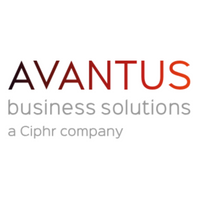Pension Schemes Bill: What employers need to know
Major pension reforms are reshaping how your employees build their retirement futures, and the clock is ticking to prepare.
Pensions rarely make the headlines, but the Pension Schemes Bill is one of those moments, bringing sweeping reforms that HR and reward leaders need to understand and prepare for.
Introduced in June 2025 and set to become law in 2026, the Bill delivers the biggest pensions reforms in a generation - tightening funding, governance and sustainability rules, and strengthening protections for employees’ savings.
While you may not run the pension scheme day to day, you play a critical role in supporting compliance, employee communications and aligning pensions with your wider ESG and people strategy.
Here’s what you need to know - and what to do next.
What’s changing: the key reforms
Pensions remain one of the most valued employee benefits - but also a significant cost and responsibility for employers. The Pensions Bill strengthens protections for savers and creates opportunities to improve governance, sustainability and engagement.
Defined Benefits (DB) schemes: Stronger funding and new options
- Tighter funding rules: Trustees and employers must agree clear, long-term plans with stricter targets and greater scrutiny of business decisions.
- Unlocking surplus funds: Trustees can now share surplus funds between employers and members (with safeguards).
- Superfunds as a new option: Smaller DB schemes can more easily transfer into statutory “superfunds.”
Defined Contributions (DC) schemes: Bigger and more accountable
- Megafunds: Default funds must hold at least £25 billion in assets by 2030 to remain eligible for auto-enrolment — boosting governance, scale and returns.
- Value-for-money (VFM) tests: Schemes must pass new VFM tests on investment performance, costs and service quality - failing schemes face closure.
- Automatic small pot consolidation: DC pots under £1,000 and inactive for 12+ months transfer to authorised consolidators automatically.
- Default retirement options (decumulation): Trustees must offer “default solutions” for DC members who don’t actively choose how to access their pension.
Enhanced governance and ESG
- Climate and ESG disclosures: Larger schemes must report on climate risks and ESG factors, with encouragement to invest in UK growth.
- Higher governance standards: Trustees face tougher governance and reporting requirements.
What HR and benefits leaders need to do now
Get up to speed: Talk to your pensions and legal teams to clarify what applies to your organisation - and how your scheme provider plans to handle the new requirements.
Strengthen trustee relationships: Enhanced governance means closer collaboration. Ensure HR is consulted early on business decisions (like restructures, dividends, acquisitions) that could impact the scheme.
Explore surplus opportunities: If your DB scheme is well-funded, work with finance and trustees to assess surplus fund options. The new surplus-sharing provisions open the door to reinvestment or redistribution.
Reassure and inform employees: Prepare clear, confident communications explaining what’s changing, why it protects their savings, and where to get help. Even positive reforms can cause anxiety.
Review your benefits package: Consider whether stricter DB rules and higher costs affect your benefits mix and if DC should play a bigger role in meeting employee needs.
Align pensions with ESG goals: Show how your scheme’s investments reflect your sustainability story and corporate values - something employees, especially younger ones, increasingly care about.
The bigger picture: Strengthen trust through change
For HR and benefits leaders, the Pension Schemes Bill isn’t just about compliance — it’s your chance to demonstrate good governance, align pensions with your people and ESG strategies, and build trust by helping employees feel secure about their future.
By engaging early, communicating clearly, and keeping employees at the heart of your approach, you can turn regulatory change into a positive story — for your business and your people.
This article reflects the draft Pension Schemes Bill as introduced in June 2025 and is subject to change as the Bill progresses through Parliament.
Supplied by REBA Associate Member, Avantus
Flexible Benefits & Technology specialist providing online, highly configurable platforms to Customers and Intermediaries worldwide.








